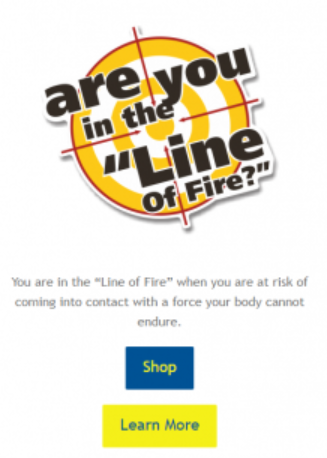Are You in the Line of Fire?
The Line of Fire Program is designed to encourage worker engagement. It begins with a plan followed by the roll out of activity packages where feedback and worker discussions are facilitated and follow-up is conducted. Supportive actions include conducting hazard hunts and work site inspections as well as ongoing continuous improvement of the program.
The Line of Fire Program contains the following:
- Implementation Procedure
- Readiness Checklist
- Inspection Forms
- Tools and Supporting Forms
- Activity Packages
Draft Line of Fire Program - Available for Industry Review
A new Line of Fire Program Guideline is available for industry review.
This updated program builds on the foundation of the current “Are You in the Line of Fire?” initiative, transitioning from an implementation plan to a comprehensive, industry-wide safety program.
How to Participate:
- Review the draft LOF Program and its attachments by December 4, 2025
- Send feedback to: safety@energysafetycanada.com
The program is structured into three categories:
![]()
![]()
![]()
Stored energy including pressure releases
Striking hazards including dropped objects
Crushing hazards including hand injuries
Video Resource
Line of Fire - Vehicles and Mobile Equipment
This video is designed to encourage conversations about line of fire hazards in relation to vehicles and mobile equipment. Please review the YouTube video description for helpful instructions on how to use this video, questions to ask and talking points to review with your workers.
Program Resources
Supporting Research
Reviewing industry safety trends and research can help drive improved safety performance. The report on Occupational Fatalities in the Oil and Gas Industry provides insight into historical trends and accident types.
Online Store
Contact Safety@EnergySafetyCanada.com for support to implement this program.
Acknowledgement
Energy Safety Canada acknowledges Suncor Energy for sharing their Line of Fire program with Energy Safety Canada for adaptation by industry. Energy Safety Canada also acknowledges the support, information and guidance from the International Association of Oil and Gas Producers (IOGP), DropsOnline.org and the American National Standards Institute (ANSI).

